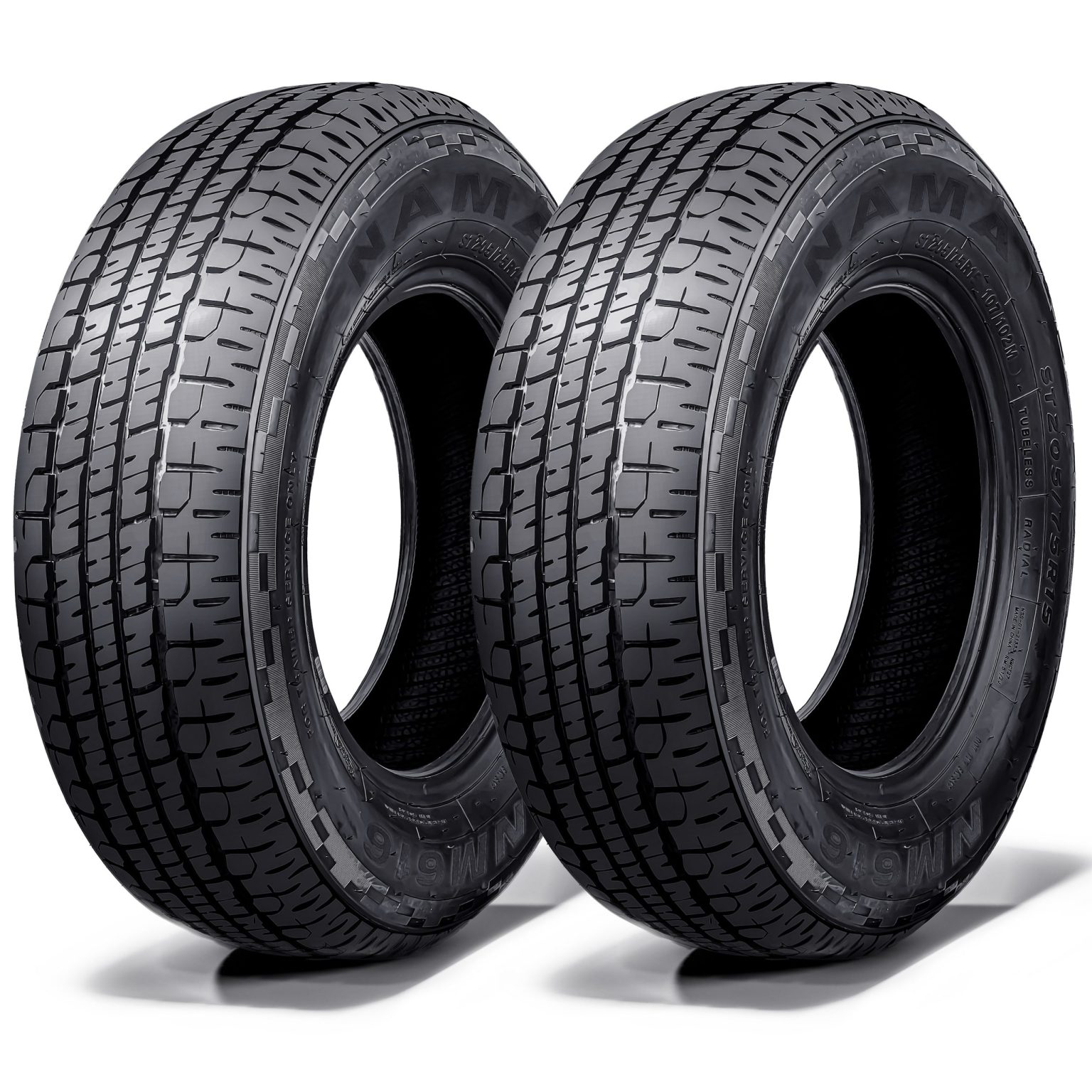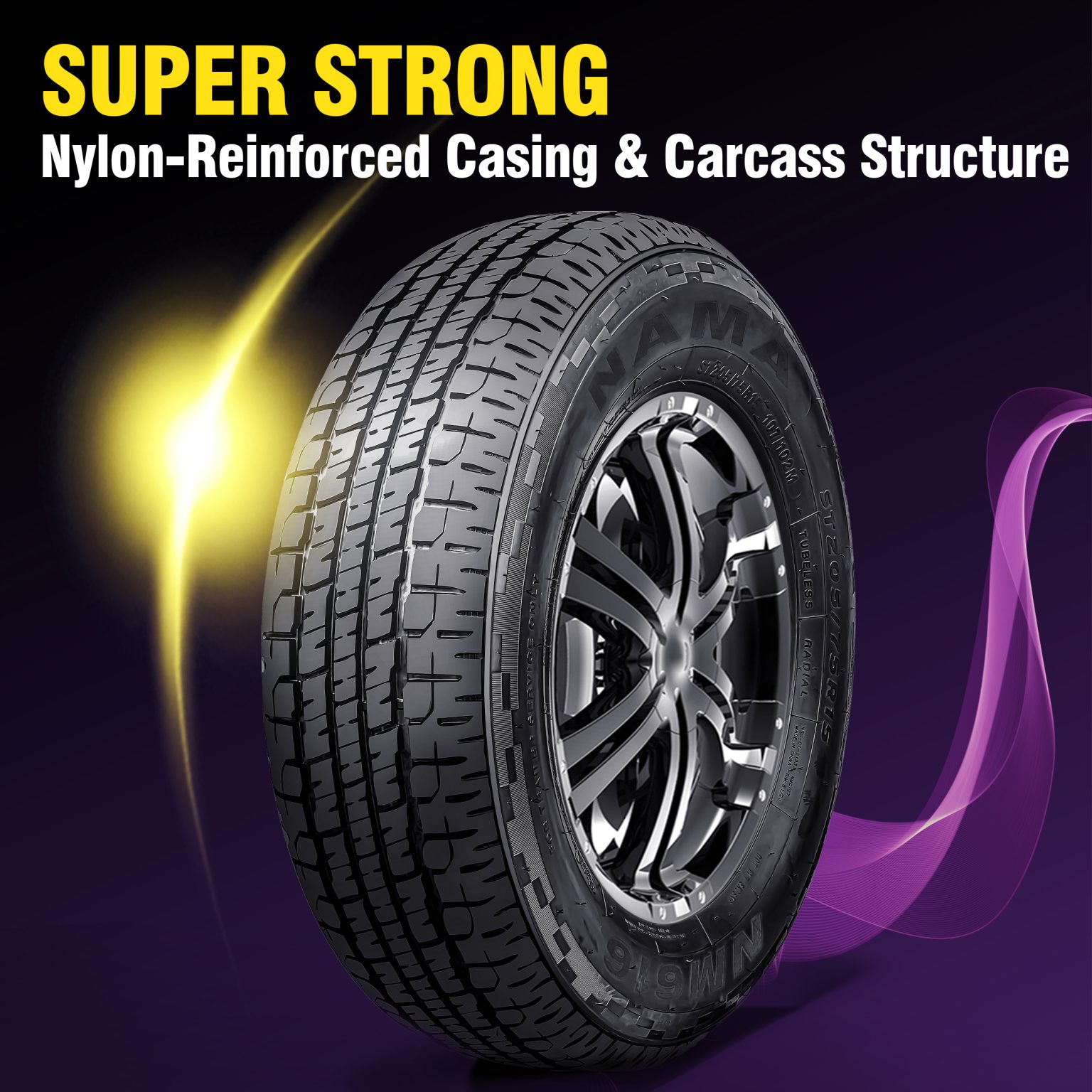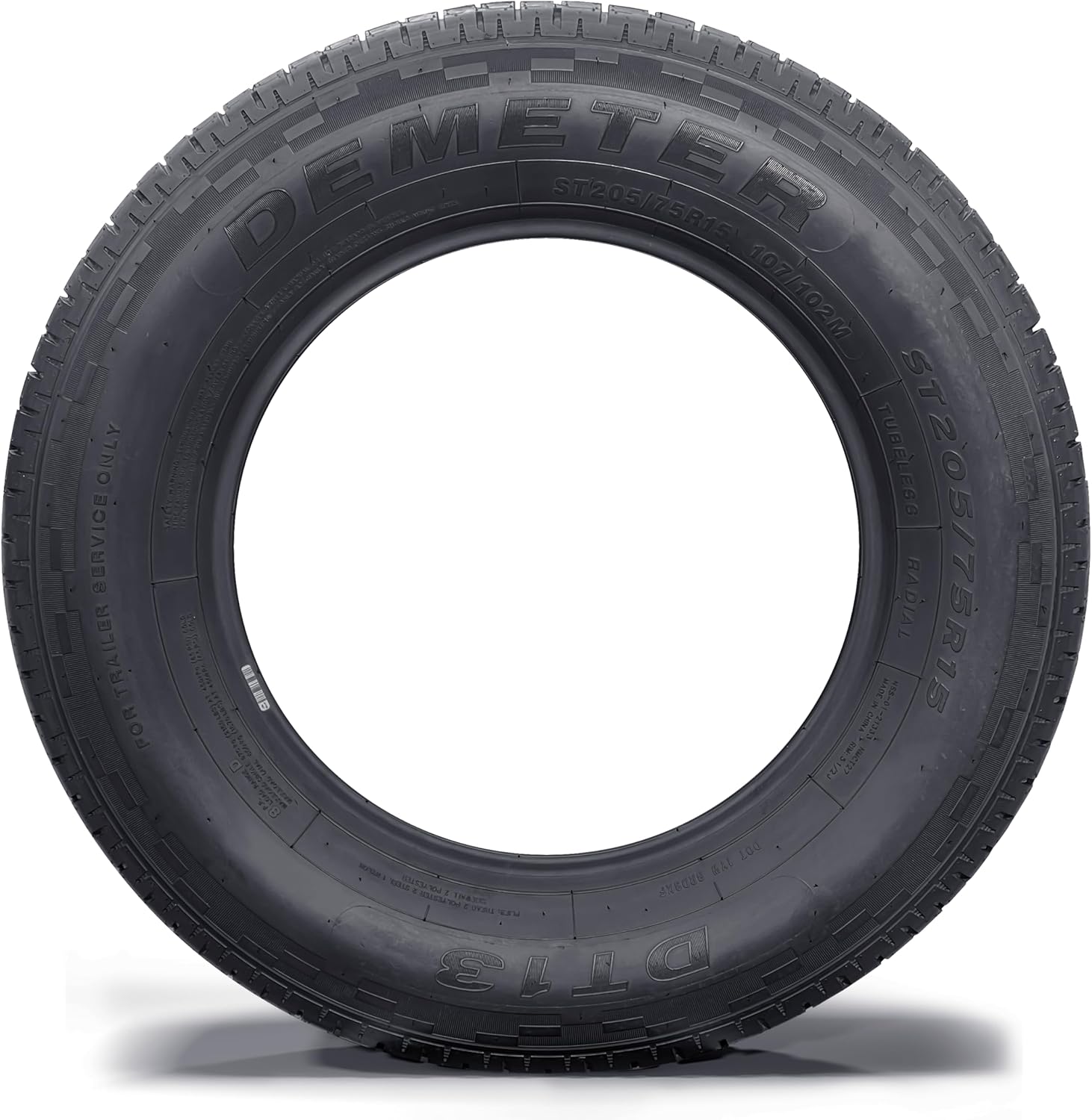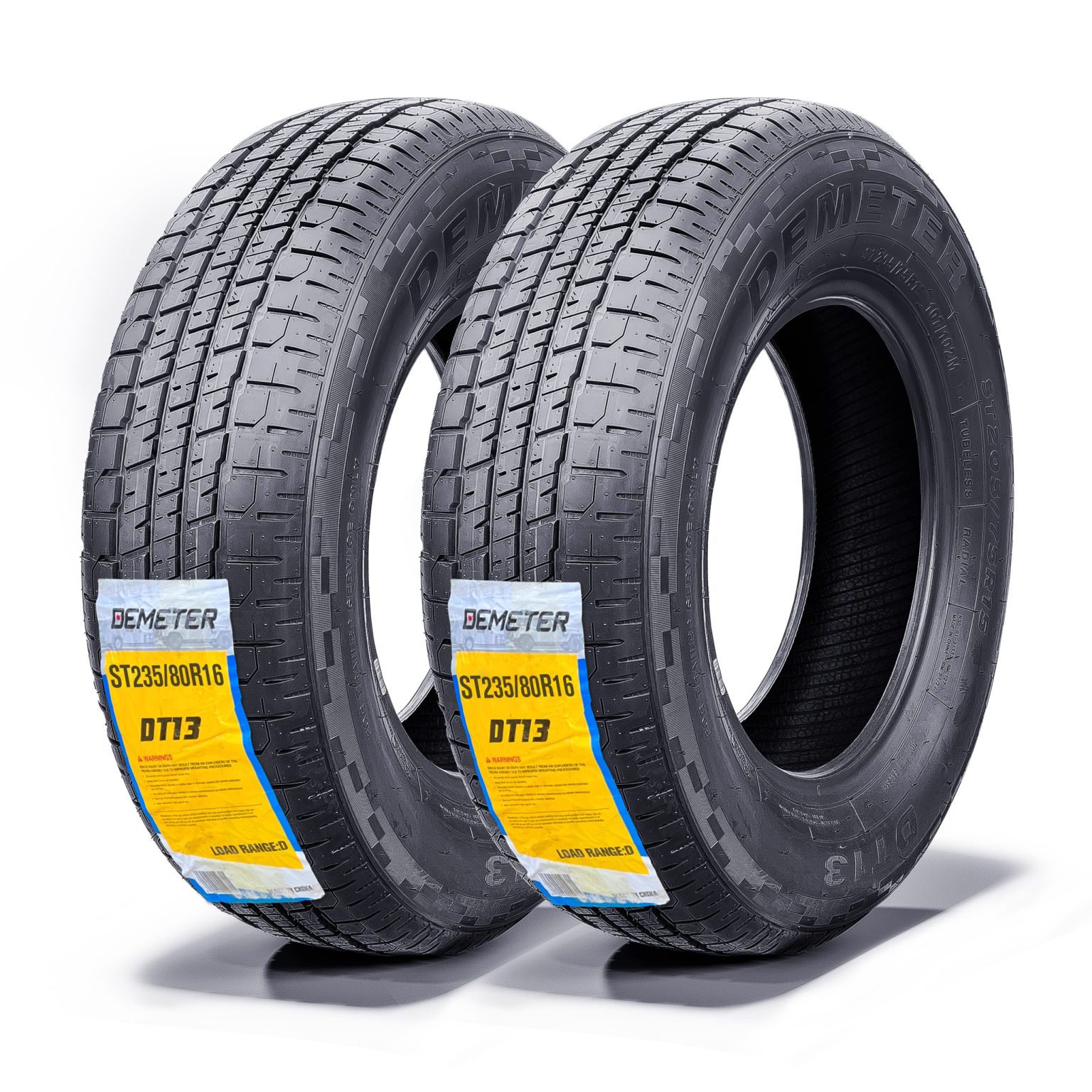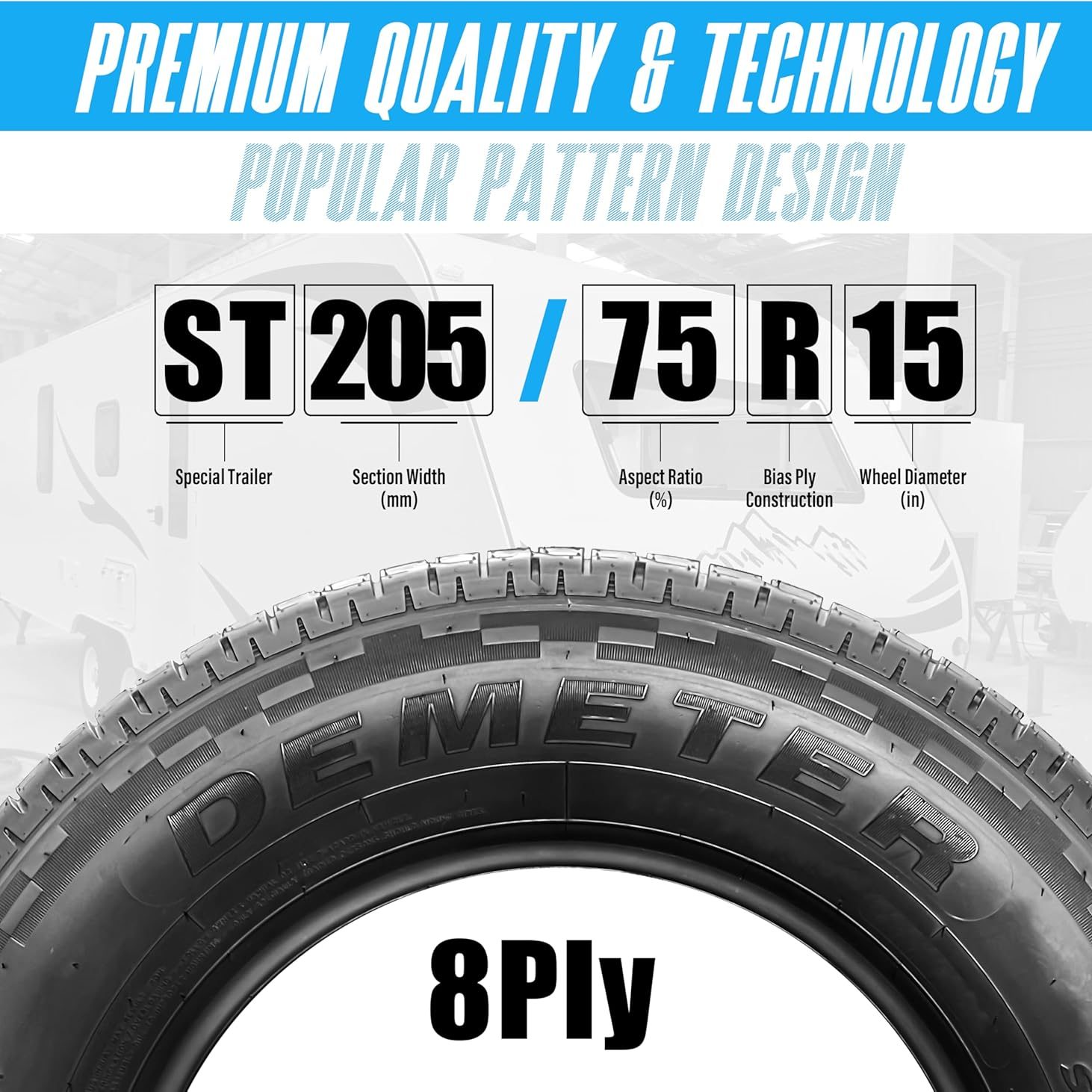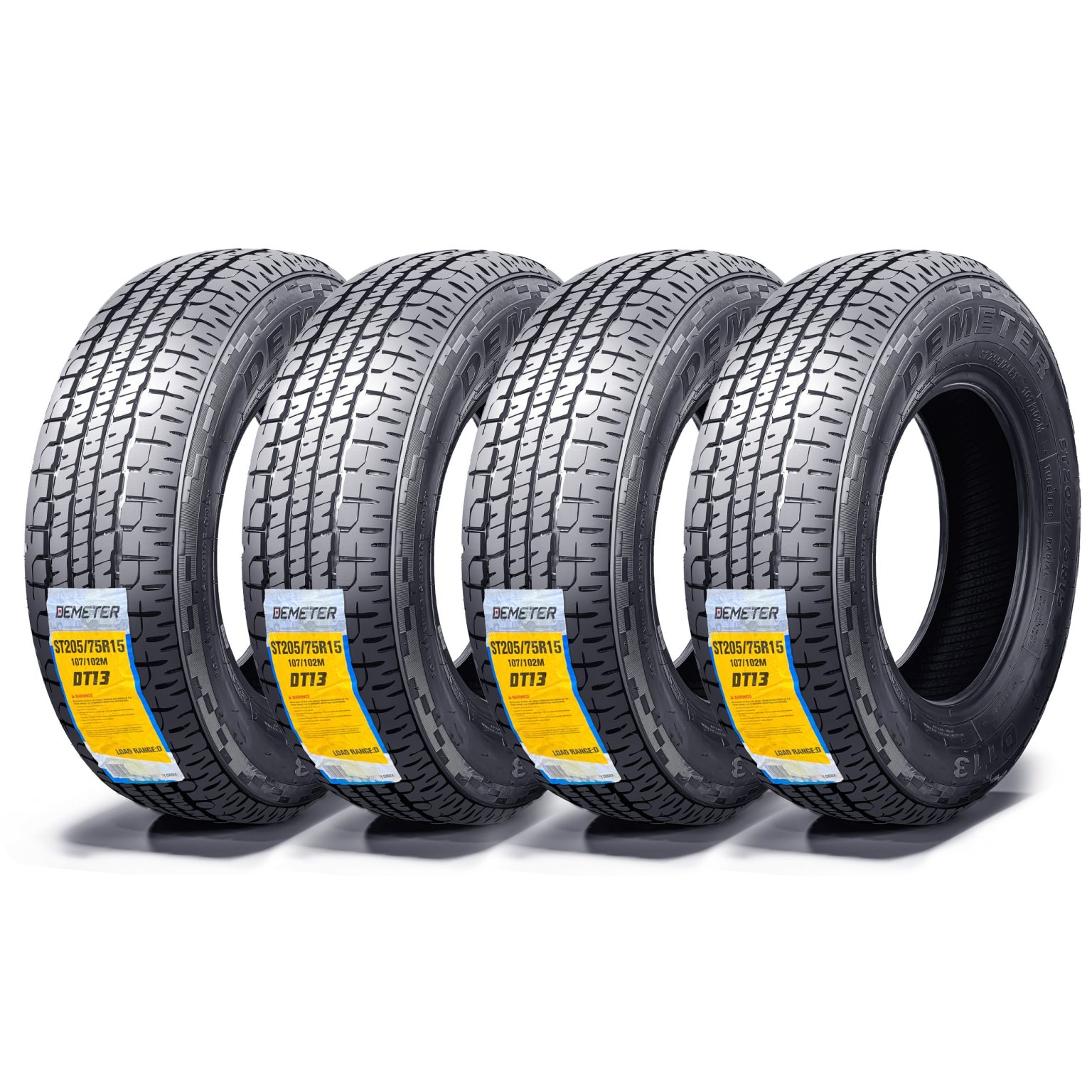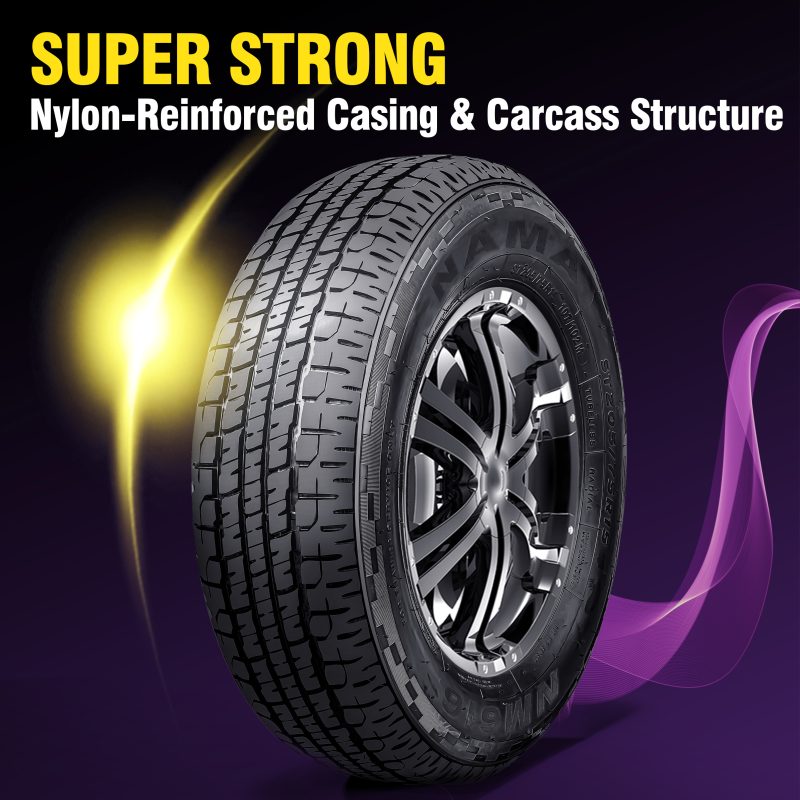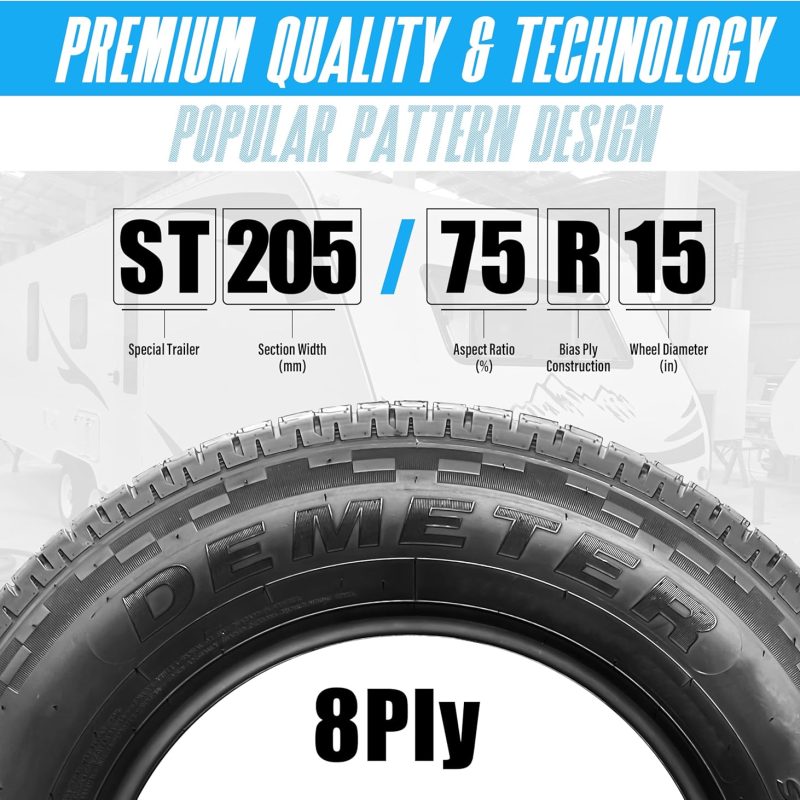Trailer tires play a crucial role in ensuring the safety and stability of your trailer. Whether you use your trailer occasionally for short-distance transport or frequently for long-distance travel, regularly checking and replacing your trailer tires is key to maintaining its performance. However, many trailer owners often wonder: “How often should trailer tires be replaced?” This article will provide a detailed answer to this question and offer practical tips for extending the lifespan of your trailer tires.
Recommended Replacement Time for Trailer Tires
In general, the replacement time for trailer tires depends on several key factors, including frequency of use, mileage, load capacity, and storage conditions. Most tire manufacturers recommend replacing trailer tires every 3 to 5 years, even if the tires appear to be in good condition. This is because the rubber material of the tires gradually ages over time, reducing the overall performance and safety.
Main Factors Affecting Trailer Tire Lifespan:
- Mileage: If your trailer is frequently used for long-distance hauling, the tires will wear out faster than those used for short trips. In this case, it’s usually recommended to replace tires every 20,000 miles (approximately 32,000 km) or every 3 years.
- Load Capacity: The heavier the load, the more stress is put on the tires, causing faster wear. Therefore, trailers frequently carrying heavy equipment should have their tires checked more often to avoid overloading.
- Tire Pressure Management: Low tire pressure can lead to abnormal tire wear, while high tire pressure may cause blowouts. Thus, it’s crucial to maintain tire pressure within the manufacturer’s recommended range (usually between 45-60 PSI).
- Storage Conditions: If trailer tires are exposed to UV rays and extreme temperatures for extended periods, the rubber will age faster. Proper storage, such as using tire covers, avoiding direct sunlight, or placing the trailer in a shaded area, can significantly extend tire life.
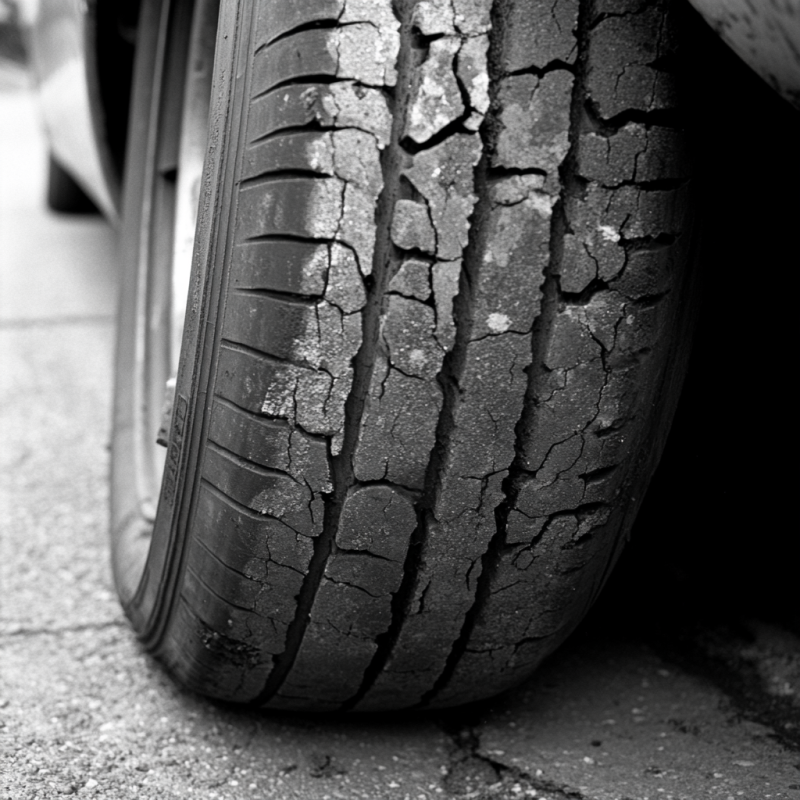
Common Signs of Trailer Tire Aging
To ensure the safety of your trailer, it’s essential to regularly check for signs of tire aging. Here are some common symptoms of aging tires:
- Sidewall Cracking: The sidewall is the weakest part of the tire. If you notice fine cracks or rubber peeling off the tire’s side, it’s a sign that the tire is aging.
- Severe Tread Wear: When the tread depth is less than 2/32 inches (approximately 1.6 mm), the tire’s grip is significantly reduced and should be replaced immediately.
- Tire Deformation: If the tire surface appears irregular, with bulges or depressions, it may indicate an internal structural problem and should be replaced promptly.
How to Extend the Lifespan of Trailer Tires?
Although trailer tires will inevitably age over time, the following methods can effectively extend their lifespan:
- Regularly Check Tire Pressure: Ensure that the tire pressure remains at the recommended level. Both overinflation and underinflation can accelerate tire wear.
- Balance the Load: Avoid placing weights on the trailer that exceed the tire’s load capacity. Overloading not only accelerates tire wear but can also cause tire failure.
- Rotate Tires Regularly: If your trailer has multiple axles, rotating the tires every 6,000 to 8,000 miles can ensure even wear and extend the tire’s lifespan.
- Proper Tire Storage: When the trailer is not in use, store it indoors or use tire covers to prevent damage from UV rays and extreme weather conditions.
Best Practices for Replacing Trailer Tires
When it’s time to replace your trailer tires, consider the following key points:
- Choose the Right Tire Type: Trailer tires mainly come in two types: ST (Special Trailer) and LT (Light Truck). ST tires have a higher load capacity and stronger lateral support, making them ideal for heavy-duty trailers.
- Check the Tire Production Date: When purchasing new tires, always check the production date on the tire sidewall (usually marked with “DOT” followed by four digits indicating the week and year of production) to avoid buying tires that have been stored for too long.
- Professional Installation: It’s best to have trailer tires installed by a professional to ensure proper balancing and correct torque.
Conclusion
Regularly replacing and maintaining trailer tires can not only extend their lifespan but also ensure safety while driving. Understanding the signs of tire aging and the correct maintenance methods is essential knowledge for every trailer owner. Through this article, we hope you now have a clearer understanding of when to replace trailer tires and how to maximize their lifespan with proper care.
By routinely checking tire conditions and choosing the right type of tires, your trailer will always be in its best condition!
Why Choose NAMA Trailer Tires?

NAMA is a trusted name in the trailer tire industry, offering a comprehensive range of high-quality trailer tires designed for durability, safety, and performance. Our trailer tires are engineered to handle heavy loads, provide excellent traction, and ensure a smooth towing experience. Whether you need tires for a travel trailer, boat trailer, or utility trailer, NAMA has the perfect fit for your needs.
Visit our NAMA Tire Online Store to explore our extensive collection and find the best tires for your trailer today! Choose NAMA — because the quality of your trailer tires defines your journey’s safety.
